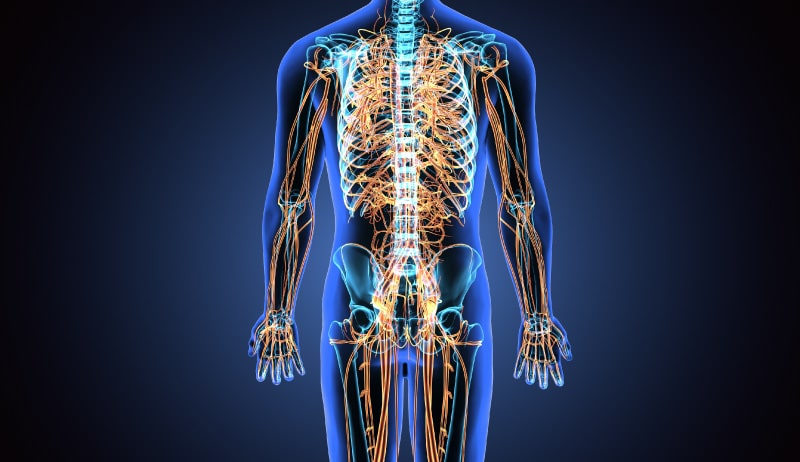Do you suffer from pain, tingling or muscle weakness in or around the neck? This may indicate a pinched nerve.
A chiropractor can help you through specialized treatment techniques that ensure more space is made for the nerve. Are you curious about what causes a pinched nerve and how the chiropractor works to remove it? Then be sure to read on!
The neck is the upper part of the spine. The cervical vertebrae, also called the cervical vertebrae, provide strength to the neck.
Another important function of the spine is to provide protection for the spinal cord. This is a bundle of nerves that connects the brain and the rest of the body. All cervical vertebrae have a specific shape. For example, each cervical vertebra has a hole in the middle through which the spinal cord runs and several protrusions for strength and stability.
The bundle of nerves gets smaller and smaller the lower you go in the spinal cord. This is because two nerves exit the spinal cord at each vertebra. A nerve on the left side and a nerve on the right side of the body. Each nerve in the body has its own area to pick up signals and send them to.

A nerve becomes pinched when it is compressed by other structures in the body. One of the best-known causes of a pinched nerve is a herniated disc. A herniated disc has everything to do with intervertebral discs. These discs are located between the vertebrae in the spine and allow the vertebrae to move smoothly over each other. The intervertebral disc has a soft interior. In the case of a herniated disc, this soft interior bulges outward, pressing on a nerve.
A pinched nerve can also come from stress. When stressed, muscle tension increases. This is evident, for example, when you sit at your desk with your shoulders hunched up during a busy workday. This increased muscle tension can cause too little room for the nerve, causing it to become pinched.
A pinched nerve can also be caused by other factors, such as:

As mentioned earlier, each nerve has its own area to pick up and send signals to. Therefore, the symptoms you experience depend on the nerve that is pinched and its function.
The entrapment of the nerve disrupts signal transmission. As a result, you experience pain in the neck. This pain can radiate to the shoulder, chest and arm. The pain may get worse when making certain movements. Whether you suffer from radiating pain depends on the nerve that is pinched and the severity of the pinching.
The pinched nerve can also cause symptoms such as tingling or numbness. The pinched nerve can also cause symptoms such as tingling or numbness.
If you suffer from the above symptoms, the chiropractor can help you reduce them. Treatment will begin with an intake interview. During this conversation, the chiropractor will ask you questions about the type of symptoms you are experiencing and when these symptoms began. The chiropractor will also perform a physical examination to find out what is causing the pinched nerve.
The chiropractor’s treatment focuses on removing the cause of the nerve entrapment in order to restore signal transmission. It may be that the symptoms in the neck are caused by a problem elsewhere in the body. By addressing the cause of the symptoms, we not only reduce your symptoms, but also reduce the likelihood of these symptoms returning in the future.
A common treatment method used within chiropractic is the application of so-called manipulations. These are pressure techniques that make more room for the nerve. The chiropractor may also give you exercises. In addition, the chiropractor gives advice on your posture and movement patterns.
Do you recognize symptoms such as pain, tingling or muscle weakness in and around the neck? Stop walking around with it and stop by TOPCHIRO! TOPCHIRO employs experienced professionals who are eager to help you eliminate your symptoms.
We hope to be able to help you soon in our practice!